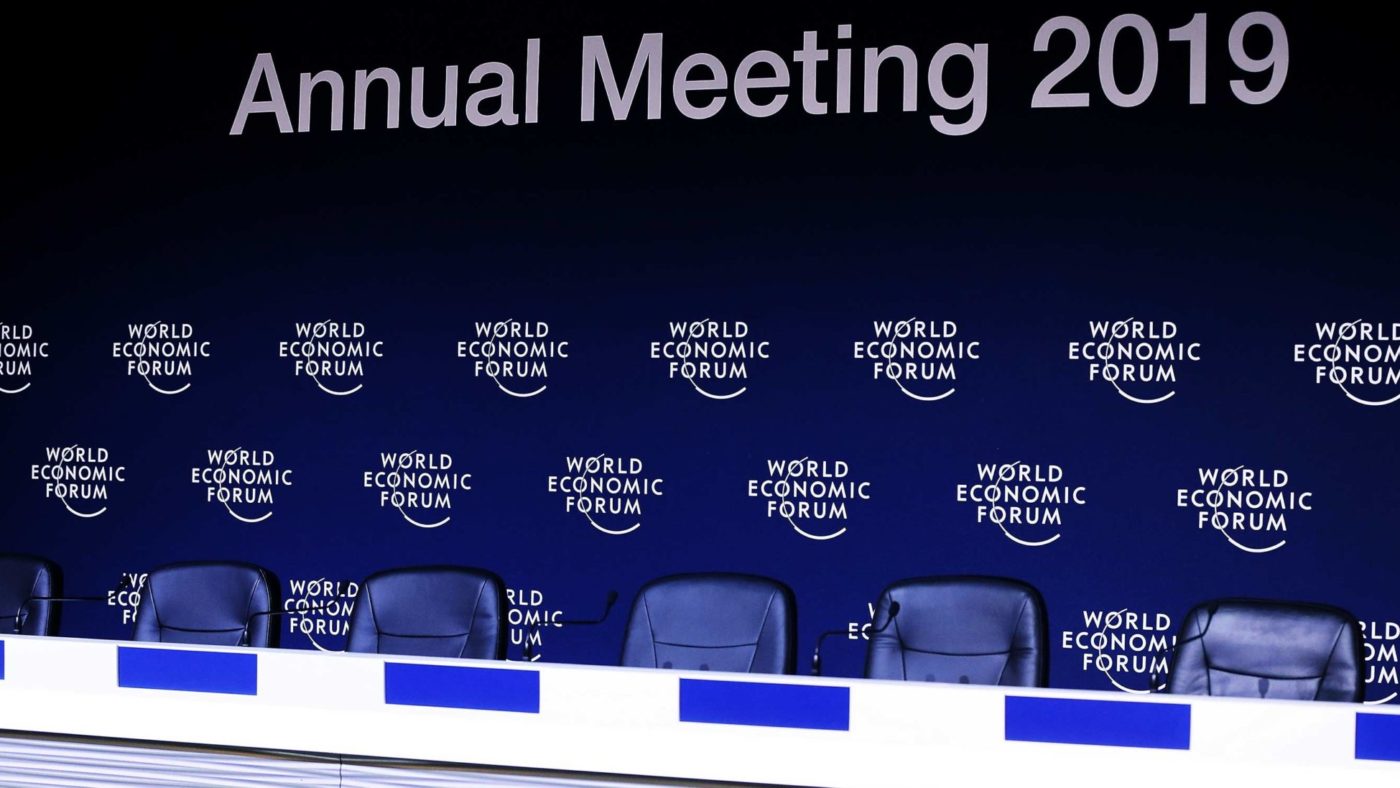“The chairman of the People’s Vote campaign now joins us from Davos” announced a BBC Radio 4 interviewer yesterday.
No surprises there, then.
The World Economic Forum in Davos is precisely where one would expect to find the kind of people that want to overturn the EU referendum result. Davos types wouldn’t just cancel referendum results they don’t approve of. If they could if they would cancel the people.
When the World Economic Forum started out in the early 1970s, it began with lots of good intentions. It was supposed to be about improving the world. An annual get-together, it was meant to allow the leaders of the day an opportunity to grapple with the great issues of the day.
Instead it has become a smug schmooze-fest. Its where lobbyists go to ingratiate themselves with supranational officials. FTSE 100 CEOs rub shoulders with former Prime Ministers in search of non-executive directorships. Thousands of officials, supranational executives and corporate bigwigs get together to exchange business cards and clichés.
Except of course this year it turns out that quite a few of the real global elite aren’t coming.
Donald Trump, who gave a key note speech at Davos last year, has cancelled. He’s sending a slimmed down US delegation instead. Neither is China’s Xi Jinping going to be there. India’s Modi, Britain’s May and France’s Macron have all pulled out, too.
Could it be that we have seen peak Davos? Perhaps an annual shindig in a ski resort isn’t the way to tackle the world’s problems after all?
Davos is supposed to give its attendees fresh insights. Perhaps. But how many of those attending its various talks on diversity have genuinely different outlooks and opinions?
The type of person that attends Davos is, to use a term deployed by the late American political scientist, Samuel Huntington, a “transnationalist”. He or she is the kind of person to “view national boundaries as obstacles that thankfully are vanishing, and see national governments as residues from the past whose only useful function is to facilitate the elite’s global operations.”
The problem for the Davos crowd is that those who live within the boundaries of those nations they would rather wish away, don’t share this agenda. Ordinary voters want governments that do more than organise public policy for the convenience of a corporate elite. In America and France, Britain and Germany, they increasingly resent having public policy shaped and influenced by those that know little of them and nothing of their concerns.
Davos is designed for leaders. Maybe Davos is in decline because the kind of leaders that go to Davos have become increasingly detached from those they purport to lead? Attendees have more in common with one another at the $52,000-per-ticket event that they have with citizens of the countries they come from.
Explaining the absence this year of May, Macron and Trump, some suggested that they were unable to attend because they face domestic pressures at home. Indeed, they do. Pressure from electorates that have come to recognise that Davos types, and the technocratic liberalism they espouse, are part of the world’s problems.
It turns out you cannot cancel the people, however often BBC Radio 4 decides to give you a platform down the line from Davos. I suspect in the coming years more elected leaders will decide to cancel going to Davos instead.


